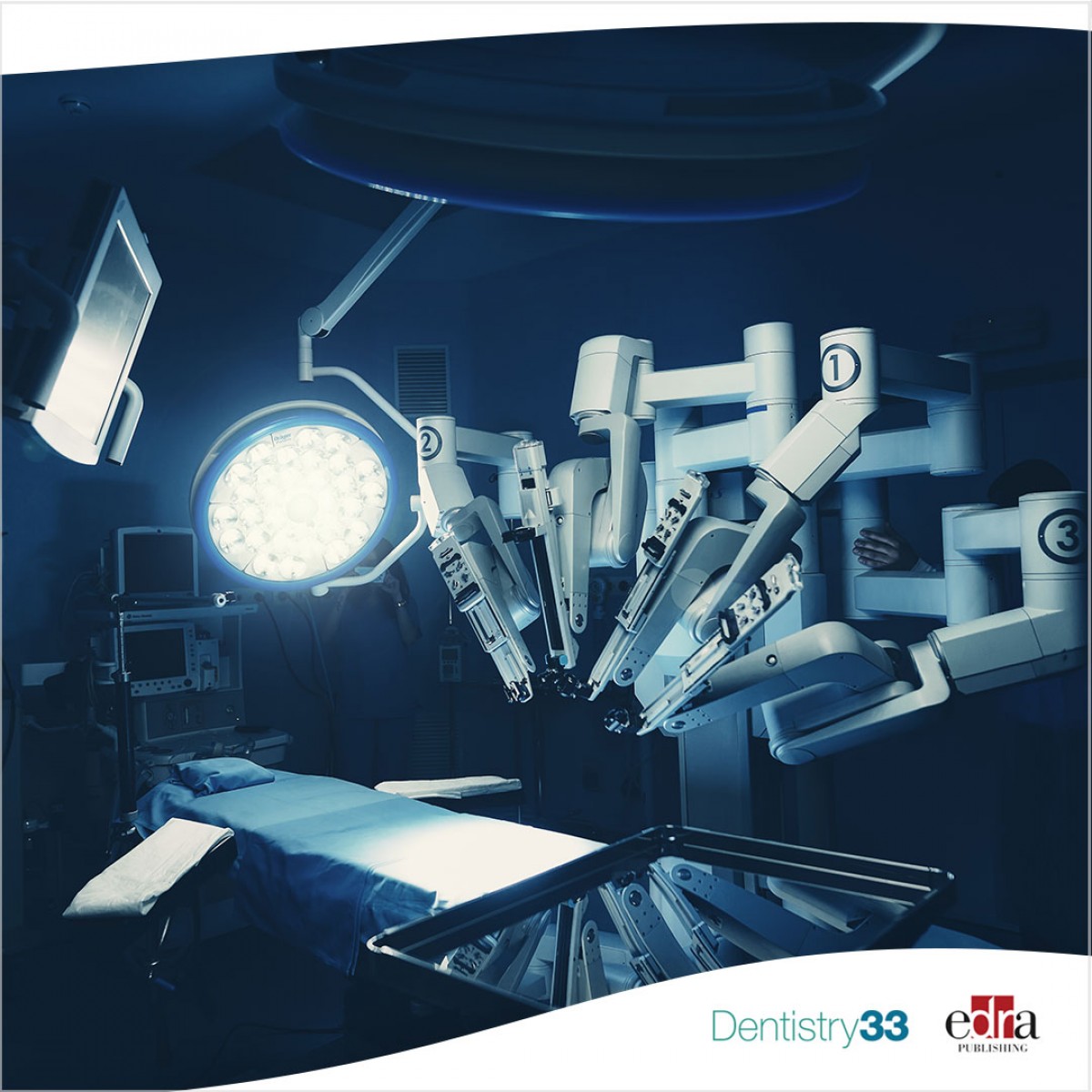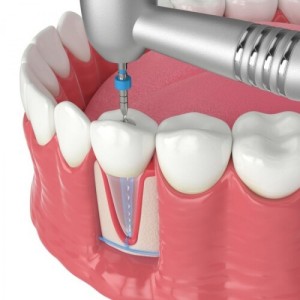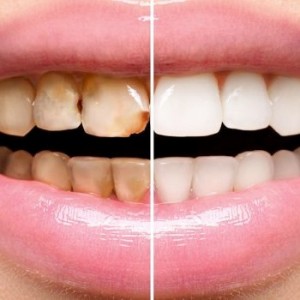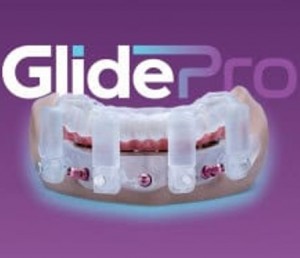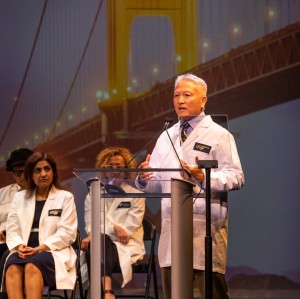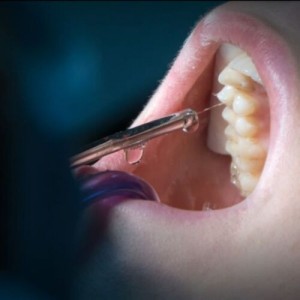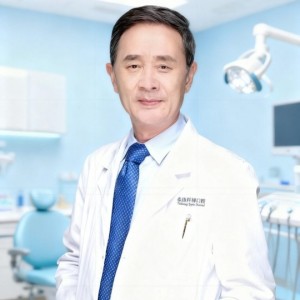
Robotic implant surgery: Will it be the future?
Lara Figini
Computer-assisted robotic implant surgery (r-CAIS) has emerged very recently as a new digital technology in oral and maxillofacial surgery. It combines the benefits of real-time feedback and accurate operative manipulation.
The r-CAIS technology involves a tactile guide robot, a semi-active robotic assistance system, consisting of an operating arm and a coordinate measuring machine arm, which provides visual guidance and physical or tactile feedback during movement. In the task-autonomy robotic system, the dental surgeon has a fair amount of control over the system. For example, the surgeon indicates where an implant should be placed, and the robotic system autonomously performs the osteotomy task while the surgeon monitors and intervenes as needed.
Materials and methods
In a clinical study, published online in February 2023 in the Journal of Dentistry, the authors investigated the accuracy of computer-assisted robotic autonomous implant surgery (r-CAIS) for single-tooth implant placement.
Researchers enrolled patients with a single missing tooth for autonomous robotic implant surgery. Patients underwent a cone beam computed tomography (CBCT) scan with a placement marker. Virtual preoperative implant placement and a drilling plan were created prior to surgery.
The autonomous robotic system included an operating system, a robotic arm, an optical tracker system and a positioning indicator. The robotic system automatically performed the osteotomy for implant placement and intraoperative positioning under the supervision of the surgeon. A postoperative CBCT scan was performed to evaluate deviations between the planned and placed implants.
Results
The team enrolled 10 patients with a single dental implant. They reported no adverse surgical events or postoperative complications (e.g., infection and early implant failure).
Robotic autonomous implant surgery showed a mean overall coronal deviation of 0.74 mm (95% CI: 0.53 to 0.94 mm), a mean overall apical deviation of 0.73 mm (95% CI: 0.53 to 0.93 mm) and an angular deviation of 1.11◦ (95% CI: 0.78 to 1.44◦), respectively.
Conclusions
From the data of this study, researchers concluded that autonomous computer-assisted robotic implant surgery has a high accuracy for placing single implants thanks to the control of angular deviation and axial errors.
Clinical significance
The main findings of this study provide significant evidence to support the autonomous robotic implant surgery system as a potential alternative in dental implant surgery.
Shuo Yang, Jiahao Chen, An Li, Ke Deng, Ping Li and Shulan Xu. “Accuracy of autonomous robotic surgery for single-tooth implant placement: A case series.” Journal of Dentistry. Volume 132, May 2023, https://doi.org/10.1016/j.jdent.2023.104451
 Related articles
Related articles
Kuraray Noritake Dental Inc., a global leader in dental material innovation, today launched KATANA Zirconia ONE For IMPLANT at Dentsply Sirona World (DS World).
Implantology 02 October 2025
Proper implant treatment planning remains the first priority for implant success. Dental imaging is an important tool to accomplish this task.
This systematic review aimed to provide an overview of zirconia implants as well as regarding the outcome of the implant-restorative complex in preclinical studies.
Products 11 September 2025
New GlidePRO Stackable Surgical Guide System Streamlines Full-Arch Implant Cases
Glidewell’s latest offering provides crown-down planning, personalized support and same-day provisionalization to support All-on-X procedures.
Implantology 02 September 2025
Innovation in dentistry: a study on the development of the dental implants industry
Numerous professions face similar technological challenges. In the field of dentistry, specifically, replacing missing teeth has always been a formidable obstacle.
 Read more
Read more
Editorials 10 October 2025
With proud smiles and crisp white coats, ninety-three learners from the DDS Class of 2029 and the International Dentist Pathway Class of 2028 marked the start of their dental careers at the UCSF...
Periodontology 10 October 2025
Continuous professional development (CPD) in Periodontology refers to the overall framework of opportunities that facilitate a life-long learning practice, driven by the learner-practitioner and...
TheraBreath, the #1 alcohol-free mouthwash brand in the U.S.*, has introduced a new line of dentist-formulated, clinically tested toothpastes designed to support professional oral care...
News 10 October 2025
New officers and trustees were installed at the Minnesota Dental Association’s Leadership Conference on September 19 in Minneapolis.
News 10 October 2025
Smartee Denti-Technology today announced that Professor Gang Shen, its Chief Scientist and Executive President of TaiKang ByBo Dental, has once again been named to the World’s Top 2% Scientists...


